CIA Sponsored Terror, Civil Liberties, Criminalizing Dissent, Human Rights, Political Prisoner, Supreme Court, Surveillance, Truth to Power, War Resister
Podcast: Play in new window | Download
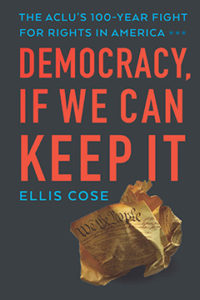
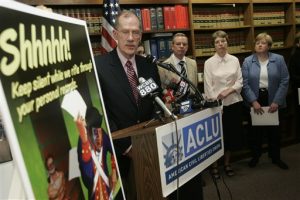
Democracy, If We Can Keep Keep It: The ACLU’s 100 Year Fight For Rights In America
The American Civil Liberties Union was formed 100 years ago in 1920 in a climate of fear in our country not unlike what exists today. Anarchists and socialists were scapegoated. They were rounded up, tried under the newly passed espionage act, and hundreds were deported or imprisoned, Eugene V Debs being the most prominent.
To mark a century of defense of the first amendment and the Bill of Rights, Ellis Close has written an important history of the ACLU titled Democracy, If We Can Keep Keep It: The ACLU’s 100 year fight for rights in America. The Los Angeles review of books recently featured an extensive appreciation of Closs’ book written by constitutional lawyer Stephen Rhode.
Guest – Attorney Stephen Rohde has been on the board of the southern California ACLU over 25 years. He has taught constitutional law and has written a number of books on civil liberties.
—-
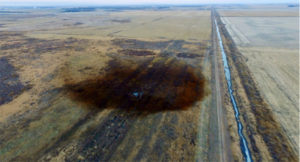

Dakota Access Pipeline: Update
July has been a legal roller coaster ride with respect to efforts to shut down the Dakota Access and Keystone XL Pipelines. First, a judge invalidated federal permits saying that the Army Corps of Engineers failed to address the potential damage from oil spills in the Dakota pipeline. He ordered the company Energy Transfer to stop pumping crude oil through South Dakota. On the heels of that order, a federal appellate court temporarily blocked that shutdown.
As for KXL, which would carry tar sands oil from Alberta Canada through Montana and South Dakota before reaching Nebraska, the Supreme Court in early July rejected the Trump administration’s request to allow construction of the KXL Pipeline by TC Energy. A Montana court ruling halting construction therefore still stands.
As listeners will recall, protesters and lawsuits against both pipelines cite the devastation that pipeline leaks would cause to the environment. In the case of tar sands oil, it is thicker, highly volatile, and more corrosive than conventional crude oil. This increases the likelihood of a leak. That renders it far more difficult, if not impossible, to clean up such a spill.
https://www.wecaninternational.org/divest-invest-protect
Guest – Attorney Natali Segovia is the Staff Attorney for the Water Protector Legal Collective – the organization that grew out of the legal tent at Oceti Sakowin camp in the Standing Rock resistance to the Dakota Access Pipeline. She chairs the Indigenous Peoples’ Rights Committee of the National Lawyers Guild and serves on the Board of Directors of the Alliance for Global Justice. She also serves on the Indian Law Section Executive Council of the Arizona State Bar.
———————————–

———————————–
Civil Liberties, Criminalizing Dissent, Human Rights, Political Prisoner, Truth to Power, War Resister
Podcast: Play in new window | Download
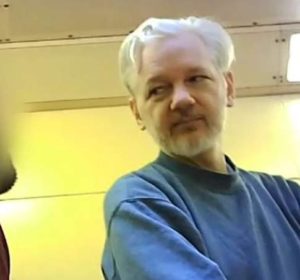
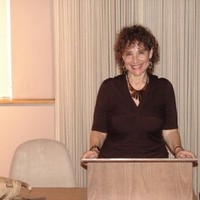
Attorney Marjorie Cohn: Trump, Assange, Democracy And Rule of Law
Without democracy and the rule of law there can be no significant social change. However, much democracy was constricted by race and class before the attacks on September 11, 2001 and before Trump, democracy and the rule of law are now facing lethal attacks on many fronts.
Trump has successfully put 198 young, reactionary, and some ignorant judges on the federal bench. He has illegally called out troops to violently disperse peaceful protesters in the park in front of the White House. Trump has threatened the personnel of the International Criminal Court who are attempting to investigate US war crimes in Iraq and Afghanistan. These include the crime of torture. These crimes, perpetrated under the Bush administration, went unprosecuted by President Obama who infamously said “we must look forward not backward.”
Trump’s Justice Department is pursuing and attempting to extradite truth telling whistle blowing journalist Julian Assange who 10 years ago released the “collateral murder” video showing the commission of American war crimes in Iraq, among other embarrassing information. Assange is confined in London’s Belmarsh prison. He is sick, in solitary, and has been psychologically tortured. He faces 175 years in prison in the United States if convicted under the old Espionage Act for activities protected by the first amendment.
Guest – Attorney Marjorie Cohn, professor emerita at the Thomas Jefferson School of Law where she taught for 25 years. She is a former president of the National Lawyers Guild, a criminal defense attorney, a legal scholar, and a political analyst. She writes books and articles and lectures throughout the world about human rights, US foreign policy, and the contradiction between the two. She has testified before Congress and debated at the prestigious Oxford Union.
——————————-

——————————-
CIA Sponsored Terror, Civil Liberties, Human Rights, Political Prisoner, Surveillance, Truth to Power, War Resister
Podcast: Play in new window | Download
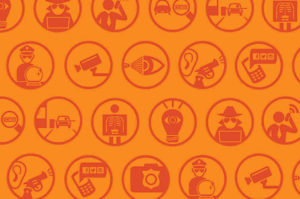
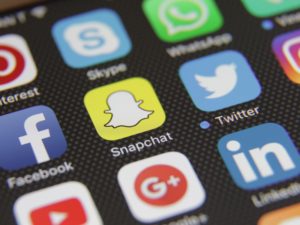
Police Spy On Social Media
In late 2016, a trove of emails revealed that law enforcement had been monitoring the social media accounts of Black Lives Matter protesters. One police sergeant in Memphis, Tennessee even opened a fake Facebook account to impersonate a black activist, infiltrate online black protest spaces, and gather intelligence on hundreds of activists. In Minnesota, an FBI Joint Terrorism Task Force used a confidential information with access to private social media communications about a BLM protest and fed that information to local police.
It turns out that such tracking is routine among local and federal police agencies. They use it in criminal investigations and to keep tabs on lawful First Amendment protected activities of dissent.
And as we’ve seen in other areas of surveillance, police watching persons online usually impacts historically over-police communities. It also has a chilling effect on free speech and online communications.
The Brennan Center in New York has issued a comprehensive report on social media monitoring. It shows how personal information gleaned from social media posts is used to target dissent and subject religious and ethnic minorities to increased vetting and surveillance.
Guest – Harsha Panduranga is counsel in the Brennan Center’s Liberty & National Security Program. His work has been featured in numerous press outlets including the Atlantic, Slate, Daily Beast, and Just Security. Harsha received his BA and JD from the University of Michigan.
—-
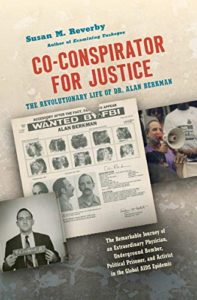
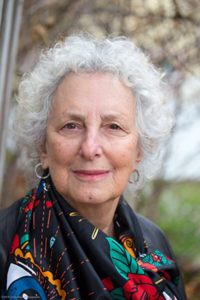
Co-conspirator For Justice: The Revolutionary Life Of Dr. Alan Berkman
After battling recurrent cancer for half his life Dr. Alan Berkman died in a New York City hospital on June 5th, 11 years ago. It was not the worst struggles of his life.
Alan was first struck by cancer when he was in prison, accused and then convicted for his political work in the political underground. He was a leader of the small May 19th movement, an offshoot of Prairie Fire then controlled by those in the Weather Underground. While hidden from public view,Alan and his comrades did non-lethal bombings of political targets, including an FBI office and the U.S. Senate, to protest American imperial and racist atrocities, and did armed robberies, which they called “expropriation‘s“, to support themselves.
Caught in 1985, Alan served eight years in some of the worst prisons in America, nearly half that time in solitary. He had two rounds of cancer, but the authorities stalled again and again on giving him adequate medical care. They hated him for being a socialist, a Jew, a doctor, and a supporter of black, Latin and Native American peoples and those harmed by American imperialism around the globe. The authorities labeled him a terrorist.
Alan came of age in the 1960s, but really did not become political until he went to medical school. He left a prestigious medical residency, on track to become a research scientist, to become a community doctor for 10 years in New York’s poorest neighborhoods throughout the 1970s. He was forced underground for years because he wouldn’t give up the name of the woman he treated for a gunshot wound she got in a failed Brinks armored truck robbery that killed two police officers and a security guard in Rockland county, just outside New York City.
After eight years in prison, amazingly, radical attorney Ron Kuby prevented New York state from not renewing his medical license. Alan, having learned about AIDS in prison, started working as an AIDS doctor in the South Bronx. In a year he became the medical director of the program.
At the height of the AIDS epidemic, Alan increasingly was horrified by the failure to provide treatment for HIV/AIDS patients in the Global South. He helped form Health GAP (Global Access Project) with the help of ACT UP and Housing Works. They fought big Pharma, which controlled manufacturing and distribution of the anti-viral AIDS medicine “cocktail” which cost $10-$15,000 a year, an exorbitant price guaranteed to them by their ownership of medical patents, their intellectual property. People could not afford the drugs, especially outside the United States, and thousands died needlessly.
Dr. Alan Berkman helped change that, not having the requisite respect for private property in a public health crisis. He got sick people drugs that were produced generically and brought the cost of the drug down to $87 a year. Some 4 million people in the global south took the medicine, prolonging or saving their lives
Michael Smith’s review of Susan’s book – The Revolutionary Life Of Dr. Alan Berkman
Guest – Susan Reverby, author of the recently published Co-conspirator for Justice: the Revolutionary Life of Dr. Alan Berkman. She is the Marian Butler MacLean Professor Emerita in the History of Ideas and Professor Emerita of Women’s and Gender Studies at Wellesley College. She is the author of Examining Tuskegee: The Infamous Syphilis Study and It’s Legacy, and other books on gender, race, health, nursing, and medicine.
————————————————

————————————————
Civil Liberties, Human Rights, Iran, Surveillance, War Resister
Podcast: Play in new window | Download

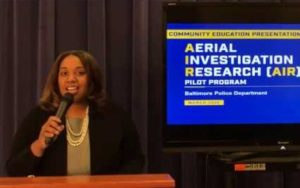
Aerial Investigation Research Pilot Program And Persistent Tracking
As the nation erupts in protests against racially-infused police violence, the Baltimore Police Department has just launched a six-month, day-time aerial surveillance experiment. A Texas billionaire has funded the project that is being operated by an Ohio-based company, Persistent Surveillance Systems. The plane flies overhead and records the movements of everyone in the city.
Michael Harrision, Baltimore Police Commissioner, has justified the nearly $4 million experiment by saying, “There is no expectation of privacy on a public street, a sidewalk.”
The Aerial Investigation Research Pilot Program is, by contract, limited to monitoring such felony crimes as robberies, car jackings, shootings and homicides. Images recorded are, in theory, to be used solely in criminal investigations and will be stored for 45 days. A first prong of the program was conducted covertly in 2016 under a different police commissioner.
The ACLU of Maryland calls this initiative the most comprehensive surveillance of a U.S. city in history. ACLU Senior Staff attorney David Rocah said, “It’s the virtual equivalent of having a police officer follow a resident every time they walk out the door, and if that happened in real life, all of us would understand the huge privacy implications in doing that.”
Guest – ACLU Senior Staff attorney David Rocah has worked on a number of significant cases involving free speech, police misconduct, privacy, election law and more. In 2011 he was an inaugural recipient of the James Baldwin Medal for Civil Rights. David previously worked as a Senior Trial attorney in the Civil Rights Division at the US Dept of Justice, focusing on police misconduct and conditions in prisons, jails and other state institutions.
—-


President Trump Withdraws From The Treaty On Open Skies – PART 2
The chance for nuclear war which would destroy human life on Earth has never been higher. Just last week President Donald Trump withdrew America from The Treaty On Open Skies. This treaty is an agreement between 34 nations that allows each country to fly over each other’s territories. The treaty is designed to provide transparency and mutual observation of military developments. He also withdrew from the Intermediary Intermediary Ballistic Missile treaty with Russia. As a consequence the Bulletin of Atomic Scientists has pushed the hands of its doomsday clock on its magazine forward to almost midnight
Shortly after taking office Trump pulled out of the Iran nuclear deal. Trump enjoys the financial and political backing of big business, the banks, the hedge funds, and the military industrial complex. These money interests profit greatly from the nuclear rearmament which is now going on. First under Obama and then Trump $1 trillion is planned to be spent over the next 30 years for a new generation of nuclear weapons, including low yield ones, which are likely to be used.
Whistleblowing truth teller Daniel Ellsberg has recently written the grimly important book The Doomsday Machine. He believes that so far, avoidance of a nuclear war has been miraculous and that the danger is as present today as it was during the Cold War. He thinks seeking profit in spite of the risk of nuclear winter is “institutional madness.“
Guest – Paul Jay is the editor of the blog the theanalysis.news. We will discuss with him the kind of movement that is needed to reverse the nuclear arms race as well as to bring about a democratic organization of the economy.
————————————————

————————————————
Academic Freedom, Censorship, CIA Sponsored Terror, Civil Liberties, Criminalizing Dissent, Human Rights, Political Prisoner, Surveillance, Truth to Power, War Resister
Podcast: Play in new window | Download
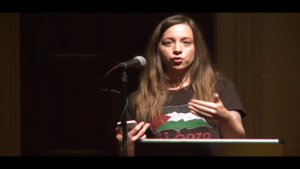
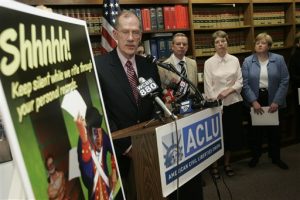
Library Freedom, TOR And Right To Privacy
Libraries in this country have long been sanctuaries in which to read, think, dream and pursue intellectual pursuits free from judgment or outside intrusion. But historically outside forces HAVE tried to intrude on this sanctitude. During the Cold War, for example, librarians exposed the FBI’s efforts to recruit library staff to spy on certain patrons, especially Russians, through the so-called Library Awareness Program. And after the attacks of September 11, 2001, the USA Patriot Act’s Section 215 has often been dubbed the “library provision” because it allows patron’s library records to be accessed and monitored by law enforcement agencies without a warrant.
In 2015 Law & Disorder reported on a New Hampshire Library that installed the Tor relay node to allow patrons to privately browse computers. Tor is anonymizing software that lets users conduct online searches without being monitored. Soon after, the Department of Homeland Security contacted local officials who visited the library, warning that Tor could aid criminal behavior.
Alison asks to please visit your local library website and facebook pages to increase their usage metrics which in turn help when applying for funding.
Guest – Alison Macrina was one of the people responsible for the New Hampshire library’s privacy tools. Alison is a librarian, privacy rights activist, and the founder and director of the Library Freedom Project, an initiative that helps educate librarians and their local communities about surveillance threats, privacy rights and law, and privacy-protecting technology tools to help safeguard digital freedoms.
—-
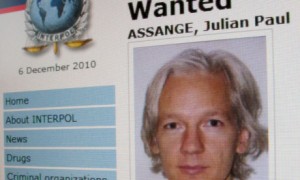
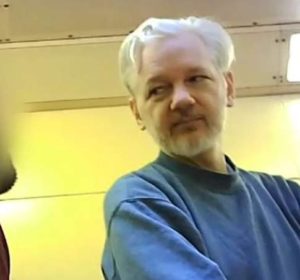
Julian Assange Extradition Update
Wikileaks founder Julian Assange’s extradition hearing began in January but is on hiatus at least until September 2020. At the January appearance, the prosecution pleaded for the media to stop characterizing the US effort as a politicized war on journalism. In response, Julian’s defense provided a comprehensive summary of the many reasons that journalists and human rights activists have called Julian’s indictment a threat to a free press.
James Lewis argued for the Crown Prosecution Service, which acts on behalf of the United States in its extradition request. Lewis explicitly asked journalists covering the case not to report that it represents a matter of free speech or the right to publish. Lewis depicted the indictment as solely a matter of exposing informants in the Iraq and Afghanistan war logs and the State Department cables.
Julian’s defense lawyer Edward Fitzgerald detailed how extradition proceedings constitute an abuse of process. He asserted that they have been brought for ulterior political purposes, as an attack on freedom of speech, and fundamentally misrepresent the facts in order to extradite Julian to the US, where he faces torture, unusual and degrading treatment.
Guest – NYC attorney Nathan Fuller, Executive Director of the Courage Foundation.
—————————————

—————————————
Civil Liberties, Human Rights, Surveillance, Truth to Power, War Resister
Podcast: Play in new window | Download

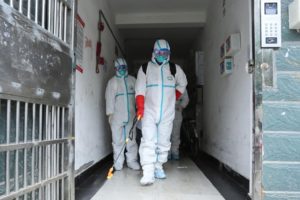
COVID-19 Virus And History of Quarantine
“Quarantine” is a state, period, or place of isolation in which people or animals that have arrived from elsewhere or who have been exposed to infectious or contagious disease are placed.
As Law & Disorder taped this show in early March 2020, thousands of people around the globe are being quarantined as governments rush to keep the COVID-19 virus from spreading. In China, for example, thousands were forced into mass quarantine centers. And entire cities and towns in Italy were put on lock-down, sending an estimated 100,000 persons into quarantine.
In the United States, quarantines are being readied for some first responders. Two dozen emergency workers are being monitored for possible exposure to the coronavirus. And 27 firefighters and two police officers were quarantined in Washington State.
Today on Law and Disorder we’ll examine the civil liberties aspects of quarantines and other government responses to pandemics.
The word quarantine, and the practice, dates back to the Middle Ages. It was first used in English in 1617 to refer to the 40 days a ship suspected of carrying a contagious disease was detained offshore in isolation.
But the first instance of the institutionalized practice of quarantine actually occurred in the 14th century when the Bubonic plague, also referred to as Black Death, devastated Europe from 1347 to 1352, killing approximately 20 million people.
Authorities in Venice were the first to formalize the protective action after the plague began spreading there in 1347. Ports were closed to ships and travelers who had to spend 40 days in isolation.
In the early days of the United States local and state jurisdictions were responsible for protection against contagious diseases. After a 1793 yellow fever epidemic struck Philadelphia and killed 5,000, the city created a 10-acre quarantine station called the Lazaretto along the Delaware River.
With outbreaks of yellow fever, Congress passed the National Quarantine Act in 1878 marking the federal governments involvement with quarantine activities. The quarantine system was fully nationalized by 1921, according to the CDC.
Guest – Professor Wendy Parmet from Northeastern Law School is a leading expert on health, disability and public health law and directs the law school’s Center for Health Policy and Law and its JD/MPH programs. She holds a joint appointment with Northeastern’s School of Public Policy and Urban Affairs in recognition of her national leadership in interdisciplinary thinking and problem solving on health care issues. Wendy co-edits the law school’s SSRN online publications, Human Rights and the Global Economy and the Northeastern University School of Law Public Law and Legal Theory Paper Series. In 2016, Wendy was honored with the prestigious Jay Healey Health Law Teachers Award by the American Society of Law, Medicine & Ethics.
—-
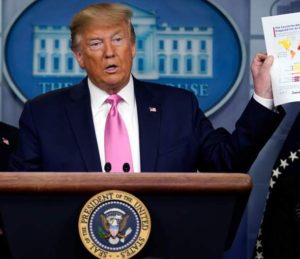
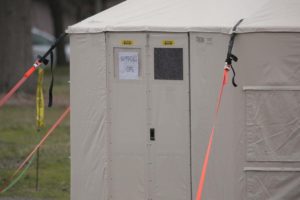
COVID-19: Public Health Experts Urge US Government To Ensure Scientifically Based Response Plan
A group of more than 450 public health experts recently urged government leaders to enact scientifically-informed policies to mitigate the effects of the Covid-19 coronavirus in the U.S. They called for fair and equitable imposition of such policies.
According to the ACLU, the experts’ recommendations, sent in a public letter, will help ensure a response plan that protects the health, safety, and civil liberties of all. It’s generally accepted that during a disease outbreak, individual rights may have to cede to give way to the greater good. But that is only if science supports the need for such measures, which may include isolation and quarantine.
In their letter, the public health experts ask officials, for example, to work with insurance companies to ensure that lack of insurance and high costs are not a barrier to testing and treatment. They call for health care facilities to be dubbed “immigration enforcement-free zones” — a step used before during hurricanes and other emergencies. And they seek extra help for under-resourced hospitals and community health centers.
Also impacted are minimum-wage workers and others who live on the economic margins, can’t telecommute, and can’t afford to lose their jobs. The experts also stress that leaders need to scrupulously ensure that their public messages are accurate and guided by science and not politics. In the past many responses to emergencies have been hindered by politics, including China’s response to the SARS coronavirus outbreak in 2003.
Guest – Jay Stanley, Senior Policy Analyst at the ACLU’s Speech, Privacy, and Technology Project at the ACLU in Washington, DC.
——————————

——————————






















